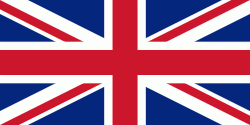University of Warwick (University of Warwick)
The University of Warwick (abbreviated as Warw. in post-nominal letters ) is a public research university on the outskirts of Coventry between the West Midlands and Warwickshire, England. The university was founded in 1965 as part of a government initiative to expand higher education. The Warwick Business School was established in 1967, the Warwick Law School in 1968, Warwick Manufacturing Group (WMG) in 1980, and Warwick Medical School in 2000. Warwick incorporated Coventry College of Education in 1979 and Horticulture Research International in 2004.
Warwick is primarily based on a 290 hectare campus on the outskirts of Coventry, with a satellite campus in Wellesbourne and a central London base at the Shard. It is organised into three faculties—Arts, Science Engineering and Medicine, and Social Sciences—within which there are 32 departments. As of 2021, Warwick has around 29,534 full-time students and 2,691 academic and research staff, with an average intake of 4,950 undergraduates out of 38,071 applicants (7.7 applicants per place). The annual income of the institution for 2021–22 was £770.6 million of which £139.9 million was from research grants and contracts, with an expenditure of £860.8 million. Warwick Arts Centre is a multi-venue arts complex in the university's main campus and is the largest venue of its kind in the UK, which is not in London.
Warwick is a member of AACSB, the Association of Commonwealth Universities, the Association of MBAs, EQUIS, the European University Association, the Midlands Innovation group, the Russell Group, Sutton 13 and Universities UK. It is the only European member of the Center for Urban Science and Progress, a collaboration with New York University. The university has extensive commercial activities, including the University of Warwick Science Park and WMG, University of Warwick.
Warwick's alumni and staff include winners of the Nobel Prize, Turing Award, Fields Medal, Richard W. Hamming Medal, Emmy Award, Grammy, and the Padma Vibhushan, and are fellows to the British Academy, the Royal Society of Literature, the Royal Academy of Engineering, and the Royal Society. Alumni also include heads of state, government officials, leaders in intergovernmental organisations, and a former chief economist at the Bank of England. Researchers at Warwick have also made significant contributions such as the development of penicillin, music therapy, the Washington Consensus, second-wave feminism, computing standards, including ISO and ECMA, complexity theory, contract theory, and the International Political Economy as a field of study.
Warwick is primarily based on a 290 hectare campus on the outskirts of Coventry, with a satellite campus in Wellesbourne and a central London base at the Shard. It is organised into three faculties—Arts, Science Engineering and Medicine, and Social Sciences—within which there are 32 departments. As of 2021, Warwick has around 29,534 full-time students and 2,691 academic and research staff, with an average intake of 4,950 undergraduates out of 38,071 applicants (7.7 applicants per place). The annual income of the institution for 2021–22 was £770.6 million of which £139.9 million was from research grants and contracts, with an expenditure of £860.8 million. Warwick Arts Centre is a multi-venue arts complex in the university's main campus and is the largest venue of its kind in the UK, which is not in London.
Warwick is a member of AACSB, the Association of Commonwealth Universities, the Association of MBAs, EQUIS, the European University Association, the Midlands Innovation group, the Russell Group, Sutton 13 and Universities UK. It is the only European member of the Center for Urban Science and Progress, a collaboration with New York University. The university has extensive commercial activities, including the University of Warwick Science Park and WMG, University of Warwick.
Warwick's alumni and staff include winners of the Nobel Prize, Turing Award, Fields Medal, Richard W. Hamming Medal, Emmy Award, Grammy, and the Padma Vibhushan, and are fellows to the British Academy, the Royal Society of Literature, the Royal Academy of Engineering, and the Royal Society. Alumni also include heads of state, government officials, leaders in intergovernmental organisations, and a former chief economist at the Bank of England. Researchers at Warwick have also made significant contributions such as the development of penicillin, music therapy, the Washington Consensus, second-wave feminism, computing standards, including ISO and ECMA, complexity theory, contract theory, and the International Political Economy as a field of study.
Map - University of Warwick (University of Warwick)
Map
Country - United_Kingdom
 |
 |
| Flag of the United Kingdom | |
The United Kingdom has evolved from a series of annexations, unions and separations of constituent countries over several hundred years. The Treaty of Union between the Kingdom of England (which included Wales, annexed in 1542) and the Kingdom of Scotland in 1707 formed the Kingdom of Great Britain. Its union in 1801 with the Kingdom of Ireland created the United Kingdom of Great Britain and Ireland. Most of Ireland seceded from the UK in 1922, leaving the present United Kingdom of Great Britain and Northern Ireland, which formally adopted that name in 1927. The nearby Isle of Man, Guernsey and Jersey are not part of the UK, being Crown Dependencies with the British Government responsible for defence and international representation. There are also 14 British Overseas Territories, the last remnants of the British Empire which, at its height in the 1920s, encompassed almost a quarter of the world's landmass and a third of the world's population, and was the largest empire in history. British influence can be observed in the language, culture and the legal and political systems of many of its former colonies.
Currency / Language
| ISO | Currency | Symbol | Significant figures |
|---|---|---|---|
| GBP | Pound sterling | £ | 2 |
| ISO | Language |
|---|---|
| EN | English language |
| GD | Gaelic language |
| CY | Welsh language |















